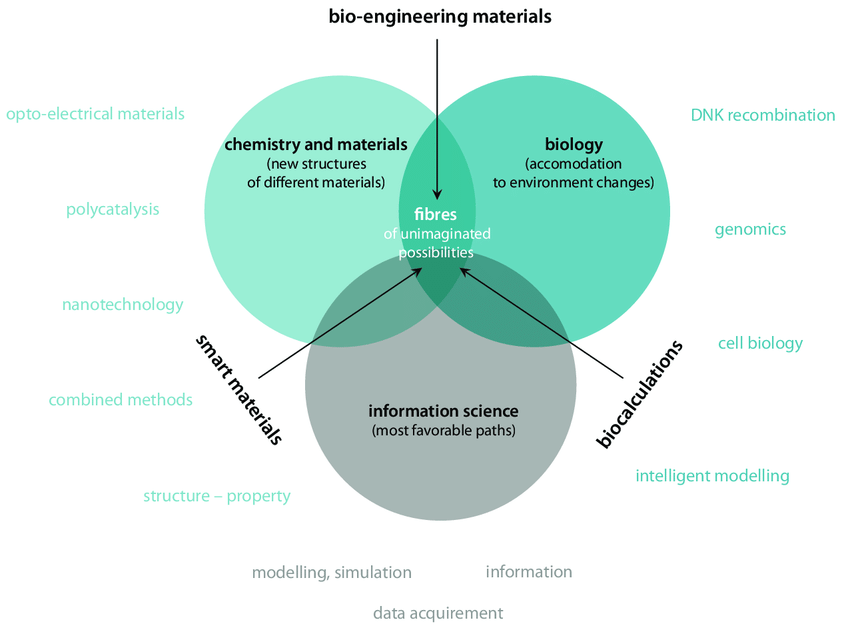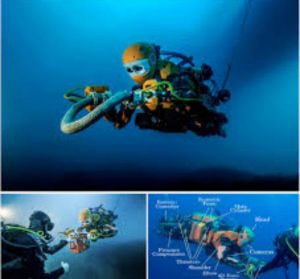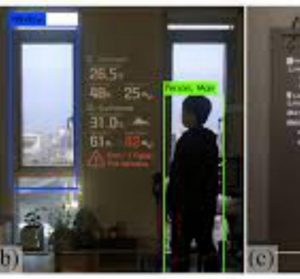what is Interdisciplinarity ؟The growing specialization of science in recent centuries under the pretext of taking advantage of minute knowledge has led to alienation and even enmity and competition between the various sciences. This competition has diverted knowledge from the main goal, which is to understand and explain phenomena, and put it in a deviant direction, contrary to the enlightening task defined for it. One of the detrimental consequences of this specialization was the loss of opportunities for creativity and innovation in researchers who had confined themselves to inflexible disciplines. The solution to this dilemma, of course, was to become more specialized and to take a new approach, which has been introduced to scientific circles since the late 1950s in the form of the title “Intermediate”. Intermediate in the general sense is “the cooperation and accompaniment of different Interdisciplinarity perspectives to reach common ground on understanding phenomena and access to perspectives other than Maloff’s field perspective.” Interdisciplinary research revealed two obvious advantages. It first presents a critical and new understanding by challenging previously accepted identities and ideas. Second, it provides an opportunity for scholars to gain a better understanding of each other’s scientific activities. Dealing with mediocrity, of course, has its own complexities and is methodologically different from Interdisciplinarity approaches. Based on this, it should be said that mere coexistence and cooperation of several fields together do not have this feature. This claim can be clearly deduced from the various terms used in the texts on this subject; Vocabulary such as: interdisciplinary, multidisciplinary, transdisciplinary, pluridisciplinary, crossdiscplinary, metadisciplinary. Dealing with mediocrity, of course, has its own complexities and is methodologically different from Interdisciplinarity approaches. Based on this, it should be said that mere coexistence and cooperation of several fields together do not have this feature. This claim can be clearly deduced from the various terms used in the texts on this subject; Vocabulary such as: interdisciplinary, multidisciplinary, transdisciplinary, pluridisciplinary, crossdiscplinary, metadisciplinary. Dealing with mediocrity, of course, has its own complexities and is methodologically different from disciplinary approaches. Based on this, it should be said that mere coexistence and cooperation of several fields together do not have this feature. This claim can be clearly deduced from the various terms used in the texts on this subject; Vocabulary such as: interdisciplinary, multidisciplinary, transdisciplinary, pluridisciplinary, crossdiscplinary, metadisciplinary.
what is Interdisciplinarity ?
Interdisciplinary terms, interdisciplinary education, and interdisciplinary programs are increasingly used in higher education. These terms are often used with great care and are often used or replaced with similar words, including multidisciplinary and supra-disciplinary. In previous decades, the interdisciplinary approach to the curriculum lost its relevance, and for two decades, the interdisciplinary approach was considered important, but the idea of integration and the interdisciplinary curriculum was not a new idea and the integration of the curriculum. It is rooted in the thoughts and ideas of earlier thinkers who have been concerned with the unity of knowledge, the formation of coherent science, general and all-encompassing knowledge, and the combination and integration of knowledge

About KSRA
The Kavian Scientific Research Association (KSRA) is a non-profit research organization to provide research / educational services in December 2013. The members of the community had formed a virtual group on the Viber social network. The core of the Kavian Scientific Association was formed with these members as founders. These individuals, led by Professor Siavosh Kaviani, decided to launch a scientific / research association with an emphasis on education.
KSRA research association, as a non-profit research firm, is committed to providing research services in the field of knowledge. The main beneficiaries of this association are public or private knowledge-based companies, students, researchers, researchers, professors, universities, and industrial and semi-industrial centers around the world.
Our main services Based on Education for all spectrums people in the world. We want to make an integration between researches and educations. We believe education is the main right of Human beings. So our services should be concentrated on inclusive education.
The KSRA team partners with local under-served communities around the world to improve the access to and quality of knowledge based on education, amplify and augment learning programs where they exist, and create new opportunities for e-learning where traditional education systems are lacking or non-existent.










